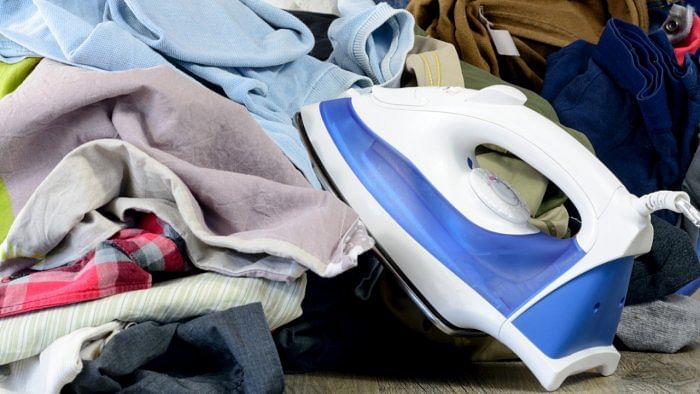
The services of traditional laundry workers have been in existence in our country since historical times. They are celebrated in folk songs and tales in almost all regional languages. Walking down memory lane, I recall, across a gulf of almost six decades, the periodic visits to our house in Chennai of Velu, the traditional dhobi of our family. He lived in a village near Saidapet, which was then a suburb of Chennai, and washed the clothes with his hands in the Adyar River with the help of his family members. Standing in the knee-deep water of the river, Velu and his wife would bash the clothes on concrete slabs, dry them in the open, and iron them before delivering them to customers.
The stocky, bearded launderer with a towel wrapped around his head and perched on his tiny bullock cart filled with bundles of clothes was a familiar figure on our streets. The collection of washed clothes from him and handing over clothes for washing were rituals in and of themselves. The clothes belonging to our household were allotted an exclusive symbol that Velu marked in a mild red colour in a corner of each piece using indelible ink. He charged a flat rate per piece, big or small.
As a washerman, Velu had a few shortcomings. If he promised to return the washed clothes within a week, he was sure to appear only after a fortnight. Rain or the lack thereof, his child's illness, or the death of a relative were some of the reasons he generally advanced to appease his irate customers. Quite often, one or two of the clothes given to him for washing would be missing, torn, or substituted. However, these shortcomings were overlooked by us due to his affable nature and clever explanations.
Velu endeared himself to all in our colony. On festive occasions, he received liberal gifts from them. The second half of the 1960s witnessed a great transformation in the way laundry was done, with the arrival on the scene of electric washing machines that automatically did the whole washing cycle.
Most households sought external assistance only for ironing home-washed clothes. Only clothes that could not be washed at home, those that had to be starched, and woollen and silk garments that needed dry cleaning were sent to laundries, which got them done by traditional washermen. Of late, laundry apps and websites have overwhelmed every Dhobi's business and shrunk his income.
Velu remained dedicated to his calling until he breathed his last. Recently, I was happy to hear from Muthu, Velu's only son who also owns a laundry, that he had spared no pains in educating his children and that his son was a senior civil engineering contractor, his daughter a nurse, and his granddaughter a gynaecologist.
While traditional laundry has given way to e-laundry, old timers like me long for the days of washermen making leisurely visits to their homes.